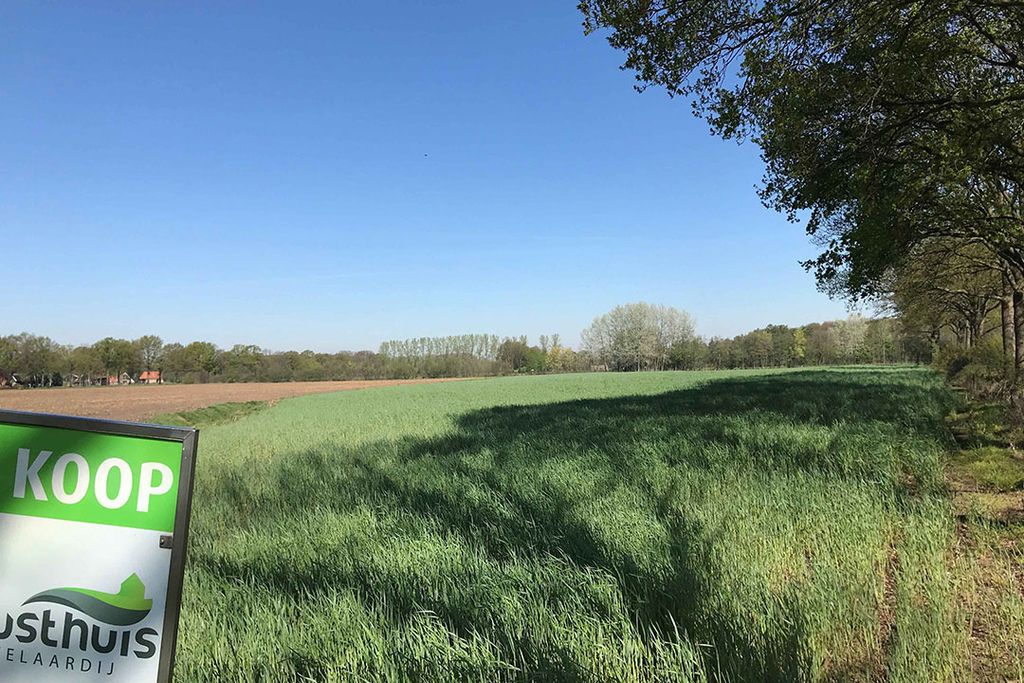Notaries and speculative land trading
The Royal Netherlands Association of Commerce (KNB) is advocating for a permit requirement for speculative land transactions to protect private buyers. Will that help? Former notary Dirk de Lange, according to the publication below, believes not.
Most speculative land transactions are ABC transactions.
B usually understands the situation: A often gets too little for his land, C often pays too much, and B makes the (exorbitant) profit. But it can also be the other way around, with A getting too little for his land.
The Royal Dutch Bar Association (KNB) already extensively addressed ABC transactions in 2007. These rules still apply, and there's a step-by-step plan for the notary: inquire about the cause of the price discrepancy, issue a warning, and, if there are no valid reasons for the price discrepancy, provide valid grounds for refusing service.
We hear the sad stories of people who invested their last pennies in supposedly warm soil. Later, it turns out the soil wasn't warm, and they're left disappointed. They feel cheated and look for someone to ease the pain: a notary! They now feel like they should have warned them. And they're right about that, as was already stated in the 2007 memo.
But how much room for manoeuvre does the notary still have?
The purchase contract had already been concluded (before they went to the notary to formalize the purchase) and already created purchase obligations. Whatever the notary had said (or written), they likely wouldn't have deviated from their plan because they were blinded by expectation. And suppose the notary had successfully convinced them not to proceed with the transaction (or had refused his services), they would have forfeited a 10% penalty because they would have had to terminate the purchase agreement.
The duty of warning is the duty of the notary to warn those involved about the consequences of their transaction.
What should that warning have been? Dear C, You buy land from B for €50, while the (WOZ) value is €5, because that's what B pays A. But B will do his best to get a building permit, and if he succeeds, the land will be worth €100. So you run the risk of failing, and the land will only be worth €5. If, after further consideration, you don't want to take that risk, you should cancel the purchase. Be aware that you will then have to pay a 10% penalty to B.
In such cases, the obligation to provide information is therefore a sham, due to the fact that the buyer's obligation to carry out the transaction has already been established.
This would be different if the notary were involved in the purchase of the plot (and not just before the transfer of ownership). In that case, educating and warning investors might (possibly) discourage them. I think notarial involvement at the closing of the purchase is much better than the permit system. Why the Royal Dutch Association of Real Estate Agents (KNB) didn't advocate this is unclear to me.
Sometimes it's possible to change the zoning, and agricultural land suddenly becomes building land. Then the land value increases exponentially.
But then you can expect the farmers who sold as A in the ABC transaction to blame the notary for not having warned them about the possible increase in value of the land.
It can go either way, with one person often being the victim, who will look for someone to share their grief with. And that person will always find a Member of Parliament who believes the notary shouldn't have been involved. And then there's an uproar, and the Royal Dutch Bar Association (KNB) and the government have to show that we're taking this seriously and taking appropriate measures.
If you're investing with money you can't afford to lose, you shouldn't be investing. And this is even more true for speculation. The difference between investing and speculation goes beyond this article. Speculation is gambling and hoping for the best. If you go to the casino, you can also lose everything. If you do that with your last money, it's gone. Only there's no notary involved who you can blame for not warning you. The government, however, believes that (online) gambling is legal and that you can also advertise it extensively.
Does the licensing system advocated by the KNB help?
Then the notary must verify for every real estate transaction whether it qualifies as an investment. That requires a lot of extra research and costs money. It seems simple, but try doing it. And if they conclude that a permit should have been applied for when one isn't available, they will have to refuse service, because then it's illegal to offer the heated ground. And if it's a transaction requiring a permit but a permit has been granted, is it even legal?
The AFM permit covers the background of the individuals and the organization of the institution offering the land. It does not cover the purchase price or the terms of the offer. You should want that. In that case, you must impose a prospectus requirement and require that the prospectus (including the valuation) also be approved by the AFM.
An AFM license as proposed by the KNB gives the impression that everything is fine.
The presence of a permit doesn't mean that people aren't being scammed. Even if a permit is in place, the notary will still have to instruct (and that's still too late, because they're not involved in the closing of the sale, but only in the delivery; the execution of the sale).
Incident policy
Why does every incident these days have to be addressed with regulations, oversight, and permits? Incident? Yes, it concerns several hundred transactions out of a volume of 400,000 per year. If someone has truly been misled, defrauded, or deceived, then the annulment actions under the Civil Code are available to them.
Stop incident management and rely on the protection offered by our Civil Code. And if you truly want to improve or change something, stipulate that the notary must draw up the purchase agreement. Only then will their duty to warn be effective.
This article is a literal reproduction of an article published on April 28, 2023, on www.praktijkgenerator.nl


Services
See also

Why MAES notaries

